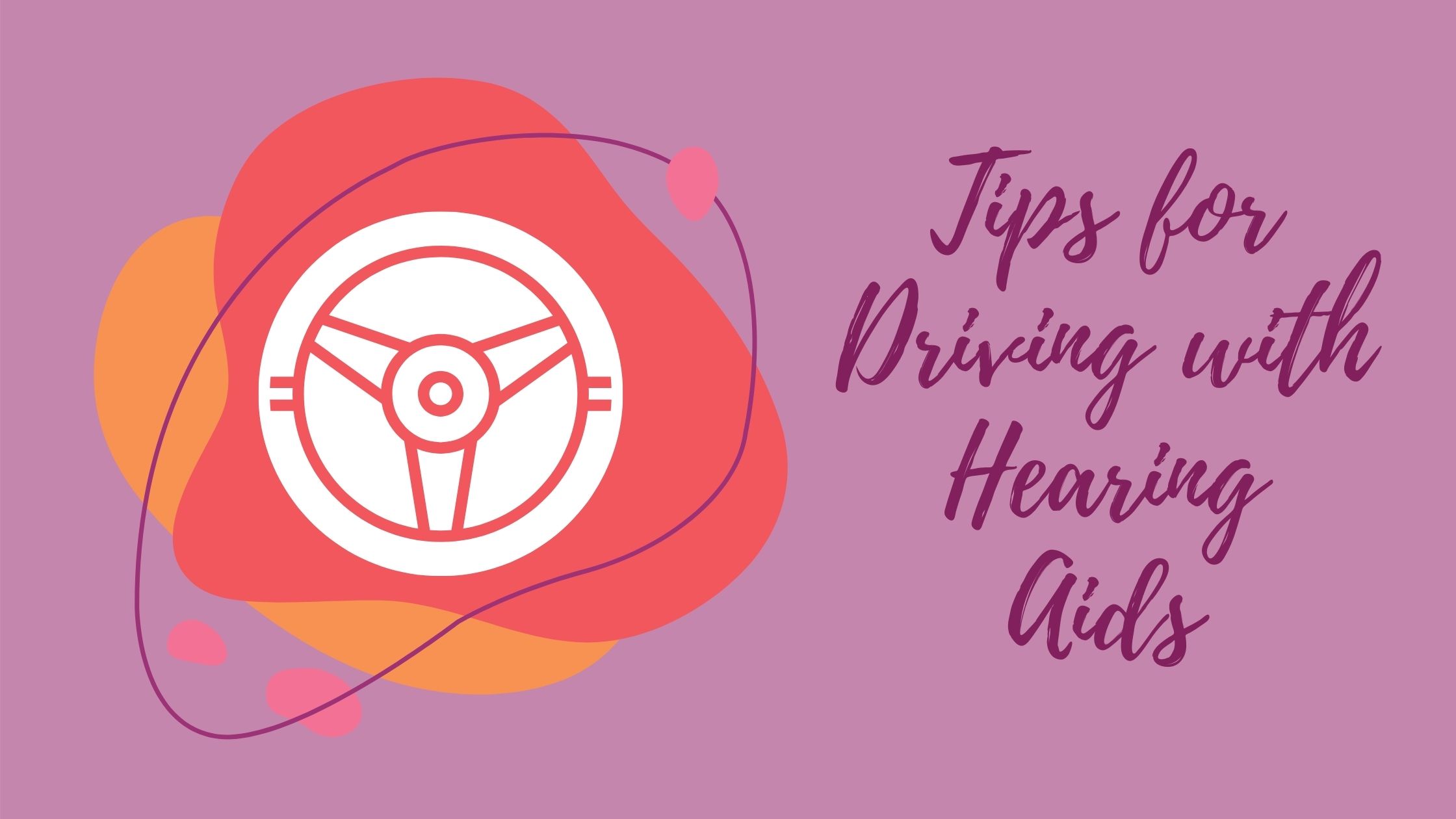Knowing the rules of the road is important ,but that’s just one part of safe driving. You also need to have experience driving, avoid distracted driving, and make sure you can see clearly. Hearing also plays a major role in keeping you safe behind the wheel. Follow these tips for driving with hearing aids and improve your driving safety.
Make Sure Your Vision is Sound
Your vision is extremely important on the road, especially if you’re driving with hearing aids. You’ll rely on your eyes to catch anything your ears have missed. For example, you may not immediately hear the sirens coming up behind you, but you’ll be able to see the flashing lights in your rear-view mirror.
If you have prescription eyeglasses, don’t leave home without them. Your glasses are a crucial part of safe driving. It’s also a good idea to get your vision checked every year. Your optometrist will help you keep your prescription up to date so you can see clearly during all your daily activities.
Avoid Nighttime Driving
Do you have a hard time seeing after dark? As your eyesight changes, you may have more difficulty seeing clearly with all those glaring headlights and reflective signs on the road. If you feel uncomfortable driving in the evening, avoid driving after dark. If you do need to drive at nighttime, choose a quiet route with less traffic.
Wear Sunglasses to Cut the Glare
Bright sun makes it much harder to see clearly on the road. Regardless of your age, sunglasses or anti-reflective lenses can help reduce glare and improve driving visibility. This is even more important if you’re driving with hearing aids. The right sunglasses will help you see clearly, keep track of the traffic around you, and stay safe on the road.
Leave Extra Time
As you get older, you may notice that your reaction times are a bit slower than before. Don’t drive too close to the car in front of you but leave a little extra room. If they break suddenly, you’ll have time to react and safely slow your car.
It’s also a good idea to leave home early so you have extra time to arrive at your destination. This keeps you calm behind the wheel and makes it easier to avoid stressing. You can also choose quieter routes, and avoid high-traffic areas where drivers are more aggressive.
Ask Your Doctor About Your Meds
Have you been feeling drowsy during the daytime? If you’re driving with hearing aids, it’s important that you’re alert every time you get into the car. If you feel drowsy or lightheaded, talk to your doctor as soon as possible. Ask about your medications and find out if any of them could have side effects that make you less focused. Your doctor may be able to prescribe an alternative medication, or suggest you take your meds at a different time of day.
Turn Off the Radio
Driving with hearing aids helps you hear all the sounds outside of your car. But your hearing aids will also amplify the sounds inside your car. Next time you get in the car, turn off the radio. Driving in silence will help you focus on driving, and help your hearing aids pick up on traffic noise.
If you’re driving with passengers, ask them to avoid having conversations in the car. You can finish the conversation before getting in the car or wait until you reach your destination. Set an expectation that the car is a quiet zone, and prioritize safety when driving.
Schedule a Hearing Test
Driving with hearing aids improves your safety on the road, helping you hear more of the sounds around you. This includes traffic noises, warning honks, or emergency sirens coming around the corner behind you. We recommend that adults test their hearing every 3 to 5 years, and older adults test their hearing every 1 to 2 years.
If you’ve noticed changes in your hearing abilities, book a hearing test and find out what sounds you’re missing. Our team of hearing health specialists will walk you through the results so you can get a clear picture of your hearing health. We’ll also recommend hearing aids that match your hearing needs and your lifestyle. They’ll even help you hear behind the wheel!

